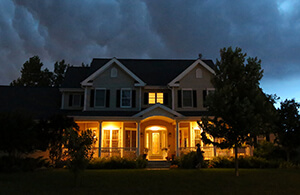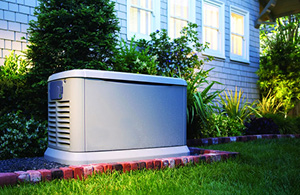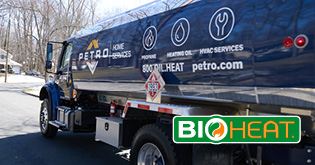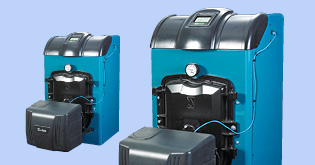- My Account:
- Sign In
- Register
- Make Payment

Do you really need a standby generator?

We all love feeling snug at home while the wind rages outside. Whether we’re making a mug of hot cocoa or settling in for a night of Netflix, there’s nothing quite like the feeling of security that comes with being in a warm, well-lit home. Alas, few of us consider the ever-present risk of losing the very thing that makes us safe and comfortable in our houses—electricity.
As secure as our homes might seem, the threat of storm-related power loss is more prevalent now than ever before and a loss of electricity can have much greater consequences than spending a few hours without wifi. When power is lost for a few days or weeks at a time, property damage and human health issues are very real risks, depending on the nature of your situation. However, if you meet the criteria outlined below, you should strongly consider getting a backup generator in order to protect your property—and your family.
3 Questions to ask yourself when considering a backup generator.
1. Do you live in a storm-prone area?
Severe storms—like hurricanes and extreme winter storms—have been in the news a lot in recent years, and for good reason: Storms are becoming more frequent and more powerful. What’s more, they often develop more rapidly than they did several decades ago, leaving us with little time to prepare for their arrival. According to NASA, “Already, there is evidence that the winds of some storms may be changing. A study based on more than two decades of satellite altimeter data (measuring sea surface height) showed that hurricanes intensify significantly faster now than they did 25 years ago. Specifically, researchers found that storms attain Category 3 wind speeds nearly nine hours faster than they did in the 1980s. Another satellite-based study found that global wind speeds had increased by “an average of 5 percent over the past two decades.”
If you live in an area where hurricanes, tornadoes, severe thunderstorms, or snow or ice storms occur, then purchasing a backup generator is strongly recommended. Having a generator prevents food spoilage (as the generator will keep your freezer and refrigerator running), protecting you from storm-related food shortages. It will also keep your heater and hot water tank operating normally. This is especially important if you’re dealing with a winter storm; numerous people have lost their homes or even their lives to fire after trying to heat them with just a fireplace.
2. Do you own a large home?
Large homes are a lot more prone to experiencing burst water pipes during winter storm-related power outages. As the house cools down, the water in the pipes attached to it starts to freeze and expand. This causes the pipes to rupture, incurring thousands of dollars worth of damage.
While it may be possible to keep a very small home warm using gas heaters (though, once again, this is not recommended for safety reasons) and thereby prevent exterior pipes from bursting, this is virtually impossible to accomplish in a large home. The only safe, practical way to protect a large home from burst pipes is to restore power—and heat—to the home via the use of a whole-house generator.
3. What kind of appliances and equipment are running at home?
Does someone in your household sleep with a CPAP machine? Do you have a hot tub that could freeze over if deprived of power? Are there any older people in your home who use a stair lift? If you answered “yes” to any of these questions, then you’re reliant on a steady stream of power. Don’t wait for an emergency to occur; install a natural gas backup generator and safeguard yourself against unexpected weather events.
Choosing a generator: Portable generators vs. standby generators.

If you’ve decided you want the protection that’s offered by backup generators, the next thing you’ll need to figure out is whether you want a portable or standby generator. While portable generators look appealing at first glance owing to their lower price tag, portability, and convenience, they have some limitations you should be aware of. First and foremost, they use up a lot of fuel. You can expect to go through about five gallons of gasoline every 8 hours. Likewise, portable generators aren’t safe for indoor use.
Standby, whole-house generators, on the other hand, have a greater upfront cost, but they can be used safely and reliably in any weather. They can also power all your appliances, whereas a portable generator will usually only be able to power a few. Finally, they can last for over 15 years and even switch themselves on automatically when the power goes out. If you live in a storm-prone area, a standby natural gas generator is a worthwhile investment.
Considerations for choosing standby generators.
Before installing an emergency generator, you’ll need a consultation. This will help the provider of your standby generator determine your specific needs. Here’s what you’ll want to clarify during your consultation:
- How many appliances you will want to run in the event of a power outage.
- Where you want your whole house standby generator to be located.
- What type of fuel you want to use to run your generator. You can choose natural gas, diesel, or liquefied petroleum.
Get the peace of mind you want and need with a standby generator.
Having a generator can protect your family against food shortages, house fires, CO2 poisoning, and cold. It can also safeguard your property and appliances against costly damage. With the incidence of lengthy power outages on the rise even in metropolitan areas, a stand-by generator should feature prominently on every homeowner’s list of priorities. Start planning your generator consultation today.
Petro Home Services is proud to not only serve communities in DC, CT, MA, MD, NJ, NY, PA, and RI but we also proudly acknowledge the skills and experience of our expert team behind all resources. With insights on topics ranging from heating oil facts to common air conditioning questions, you can rely on Petro Home Services for facts and information to help you understand more about your heating, cooling and home comfort needs. This article and all articles on the Petro Home Services website have been approved by our team of home service experts.






